![‘Han-earl Park: al ritmo afasico della chitarra’, jazzColo[u]rs (Sommario Ago./Set. 2015, Anno VIII, n. 8-9)](http://www.busterandfriends.com/_buster_wordpress/wp-content/uploads/2015/08/jazzcolours_08-2015-620x507.jpg)
The current edition of jazzColo[u]rs (Sommario Ago./Set. 2015, Anno VIII, n. 8–9) has an interview with me by Andrew Rigmore. It covers a broad range of my work, from my close collaboration with Catherine Sikora, my working relationships with Paul Dunmall, Evan Parker, and drummers such as Mark Sanders, Charles Hayward, Gino Robair and Tom Rainey, to ensembles and projects such as Eris 136199, Mathilde 253 and io 0.0.1 beta++. We also discuss the location of noise, rhythm, harmony and melody in my work, and the relationship between structure and improvisation. Andrew Rigmore opened by asking me about the meaning of ‘tactical macros’ in the context of Metis 9:
Descrivo Metis 9 come insieme di “tactical macros”, una sorta di libretto di strategie di gioco per l’improvvisazione pensato per un insieme di improvvisatori. Si tratta di schemi interattivi: Metis 9 non detta mai un evento preciso — un suono, un rumore — che chi suona debba eseguire — sarebbe un anatema per un’indagine seria nell’improvvisazione —, ma ha in sé i parametri per [intendere] quali tipi di interazione siano praticabili e quali invece risulterebbero… difficili. Le macro tattiche che creano Metis 9 sono spesso ambigue, perfino nebulose, a tal punto da paralizzare chi non è abituato ad improvvisare. Sono per certi versi simili alle regole dei ragazzini che giocano liberamente: esistono solo se funzionali al gioco — se sono divertenti, interessanti o portano a un gioco più intrigante — e vengono liberamente mutate, reinterpretate e mollate quando il gioco porta altrove. Dun- que non si tratta di composizioni in sè — che implicherebbero una sorta di appropriazione d’autorità, ingiusta verso gli sforzi dei performer —, per cui ho introdotto il termine “macro”: un’istruzione abbreviata che si espande in un processo reale non conoscibile tramite l’istruzione iniziale e di cui sono responsabili i performer — i veri agenti interattivi.
[I describe Metis 9 as a collection of ‘tactical macros,’ and by that I mean that Metis 9 is a kind of playbook for improvisation; it’s designed for an ensemble of improvisers, and it’s, in a way, about improvisation. These are interactive schema: Metis 9 never dictates the exact gesture—each bloop or bleep—that the performers are to execute—that, I think, would be an anathema to a serious inquiry into improvisation—but it does lay the parameters for what kinds of interactions might be possible, and what kinds of interactions might be… difficult. These tactical macros that make up Metis 9 are often ambiguous, possibly nebulous, to the point of, I suspect, being paralyzing to non-improvisers. They are somewhat akin to the rules that are enrolled when you see young children in free play. The rules only exist if they serve the play—if they are fun or interesting or lead to further engaging play—and are freely mutated, reinterpreted and jettisoned when play leads elsewhere. So they aren’t really compositions as such—that would take a kind of authorial appropriation that would be unfair on the efforts of the performers—which is why I stuck the term ‘macro’ on it: it’s a shorthand instruction that expands into a real process, but the process itself is not knowable from the initial instruction; the performers—the actual interactive agents—are responsible for that.]
You can read more in the current issue of jazzColo[u]rs. The issue also includes Andrew Rigmore and Antonio Terzo’s review of Anomic Aphasia (SLAMCD 559).
Thanks to Andrew Rigmore, Antonio Terzo, Piero Rapisardi and jazzColo[u]rs for the profile and their support, and to Scott Friedlander and Fergus Kelly for the photographic portraits that accompany the article.
Out now: Anomic Aphasia
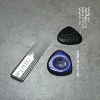
Anomic Aphasia (SLAMCD 559) [details…]
Performers: Han-earl Park (guitar), Catherine Sikora (tenor and soprano saxophones), Nick Didkovsky (guitar), and Josh Sinton (baritone saxophone and bass clarinet).
© 2015 Han-earl Park.
℗ 2015 SLAM Productions.
selected discography
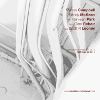
Gargantius Effect +1 +2 +3 (Nor Cal, 08-2011) [details…]
Performers: Murray Campbell (violins, oboe and cor anglais), Randy McKean (saxophone, clarinets and flutes) with Han-earl Park (guitar), plus Gino Robair (energized surfaces, voltage made audible) and Scott R. Looney (hyperpiano).
(cc) 2012 Murray Campbell/Randy McKean/Han-earl Park/Gino Robair/Scott R. Looney.
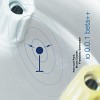
io 0.0.1 beta++ (SLAMCD 531) [details…]
Performers: io 0.0.1 beta++ (itself), Han-earl Park (guitar), Bruce Coates (alto and sopranino saxophones) and Franziska Schroeder (soprano saxophone). [About this project…]
© 2011 Han-earl Park.
℗ 2011 SLAM Productions.
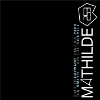
Mathilde 253 (SLAMCD 528) [details…]
Performers: Charles Hayward (drums, percussion and melodica), Han-earl Park (guitar) and Ian Smith (trumpet and flugelhorn) plus Lol Coxhill (saxophone). [About this ensemble…]
© 2010 Han-earl Park.
℗ 2010 SLAM Productions.
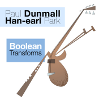
Boolean Transforms (DLE-067) [details…]
Performers: Paul Dunmall (saxophone and bagpipes) and Han-earl Park (guitar).
© 2010 DUNS Limited Edition.
℗ 2010 Paul Dunmall/Han-earl Park.

I’ve also posted another excerpt which discusses the relationship between freedom and prediction in the context of machine musicianship and improvising automata.